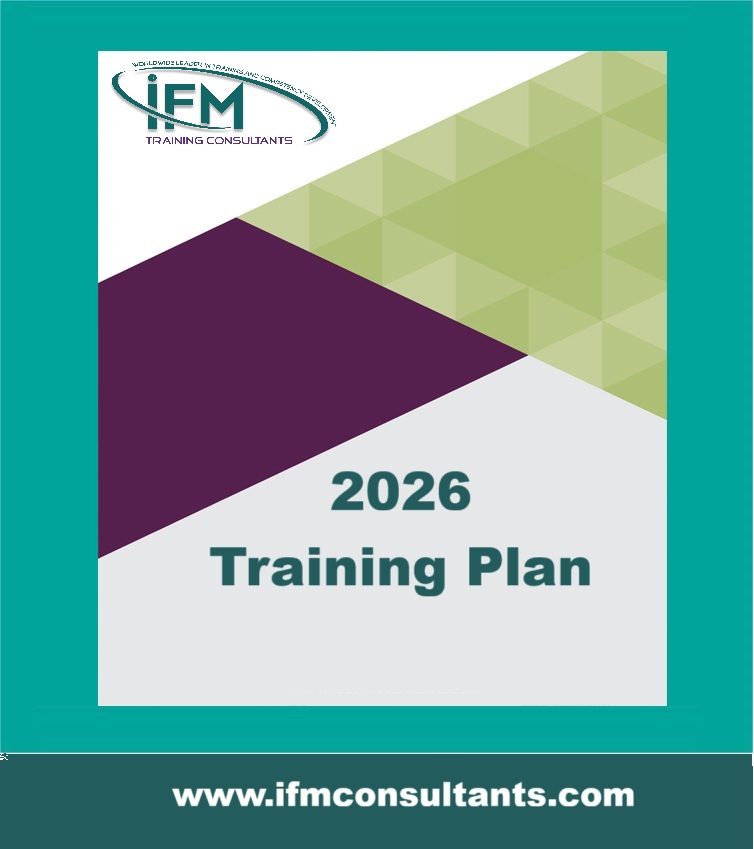Chemical Laboratory: Safety Management and Instrumental Calibration Technique as per ISO 17025
| Start Date | End Date | Venue | Fees (US $) | ||
|---|---|---|---|---|---|
| Chemical Laboratory: Safety Management and Instrumental Calibration Technique as per ISO 17025 | 16 Nov 2025 | 20 Nov 2025 | Riyadh, KSA | $ 3,900 | Register |

Chemical Laboratory: Safety Management and Instrumental Calibration Technique as per ISO 17025
| Start Date | End Date | Venue | Fees (US $) | |
|---|---|---|---|---|
| Chemical Laboratory: Safety Management and Instrumental Calibration Technique as per ISO 17025 | 16 Nov 2025 | 20 Nov 2025 | Riyadh, KSA | $ 3,900 |
Introduction
This program links together with an understanding of performance characteristics with an appreciation of the limitations imposed by analytical instrument design, leading to the interplay of the validation and qualification processes within quality assurance systems. It includes the framework of topics cover the major instrumental techniques of spectrophotometry, chromatography, capillary electrophoresis and atomic emission spectroscopy. The use of case studies, exercises and practical applications will help participants to develop a thorough understanding of the various concepts that underpin the different techniques. Major operations performed in an industrial chemical laboratory will be covered with the description of the major equipment used in the chemical laboratory, their operations, validations, calibration and maintenance, also, will concentrate on Standard Operation Procedures (SOP) which includes development, revisions, standards and implementations. Various Quality standards will be discussed. The program overviews ISO 17025, and will demonstrate the safety practices and its critical impact in an industrial chemical laboratory. OSHA standards and regulations will be discussed and related videos will be shown to course participants.
Objectives
- Apply in-depth knowledge and skills in the chemical laboratories including analytical instrumentation, analytical techniques, laboratory equipment, operational procedures, management style, method validation, quality and safety management systems
- Use the major analytical laboratory instruments and equipment and understanding their performance characteristics, capabilities, accuracies, reliabilities, speed and limitations including UV/VIS, flow injection, infrared spectroscopy, ion chromatography, pH probes, and gas chromatography
- Calibrate and certify various laboratory instruments and calculate the uncertainty and random error
- Impart the participant’s fundamental techniques of chemical laboratory
- Understand how to validate the analytical method
- Analyze the instrument performance characteristics which includes types and interaction between different characteristics
- Prepare and handle sample for different analytical instrumentations and extract analytes from complex matrices
- Develop and modify the laboratory standard operation procedures (SOP) and interpret the requirements of the ISO 17025 quality system
- Explain the flow of work and major concerns related to the Industrial Chemical Laboratory
- Carryout sampling and sample handling
- Increase knowledge about laboratory equipment and instruments such as mechanical measurements, chemical analysis and process analyzers
- Discuss nuclear magnetic instruments covering its theory, NMR spectroscopy, design and performance idea
- Illustrate NMR applications, multi-dimensional NMR spectroscopy and solid-state NMR spectroscopy
- Perform chemical laboratory operations and gain good skills of developing and modifying the laboratory Standard Operating Procedures (SOP)
- To understand the laboratory quality requirements and appreciate the need for a quality system according to the International Standards Organization ISO 17025 standard
- To use the international Guide to Lab Quality for accreditation standard methods
- Employ the safety and environmental requirements for chemical laboratory as per OSHA standard
By the end of the training, participants will be able to:
Training Methodology
The program design includes a high level of interaction between the trainer and the participants. It is built upon the participant's input all throughout the program.
Who Should Attend?
Laboratory personnel and technical staff such as chemists, analysts, chemical engineers, and anybody interested in chemical analysis, research and development, environmental studies, quality control, refineries, petrochemical plants, water and wastewater plants, hospitals and medical centers.
Course Outline
Day 1: General Aspects of Analytical Chemistry
· Terminology in analytical chemistry,
· Chemometrics,
· Figures of merit,
· Quality assurance,
· Fundamental data including those for solubility and chemical equilibria.
· The process, apparatus, and operations of analytical chemistry;
· Fundamental calculations for analytical chemistry;
· Error and error analysis;
· Statistical analysis, evaluation, and treatment of data;
· Sampling, standardization, and calibration sets;
· Aqueous solutions and chemical equilibria;
· Classical methods of analysis including gravimetric and titrimetric methods;
Day 2: Separation Methods
· Development of critical guidelines,
· Definition of terms,
· Recommendations for the operation of analytical separation methods.
· Spectrochemical methods
· Critical assessment of Spectrochemical methods of analysis involving:
· Electromagnetic radiation
· Compilation of fundamental data
Day 3: Mass Spectrometric Methods for Elemental and Molecular Analysis
· Parts of a mass spectrometer (Theoretical example)
· Creating ions
· Hard ionization and soft ionization
· Inductively coupled plasma
· Other ionization techniques
· Mass selection
· Sector instruments
· Time-of-flight
· Quadrupole mass filter
· Ion traps
· Three-dimensional Quadrupole ion trap
· Cylindrical ion trap
· Linear Quadrupole ion trap
· Orbitrap
· Fourier transforms ion cyclotron resonance
· Detectors
· Tandem mass spectrometry
· Common mass spectrometer configurations and techniques
Day 4: Electrochemical Methods
· Critical assessment of electroanalytical methods.
· Recommendations for standardization and measurement procedures,
· Development of critical guidelines,
· Compilation of essential data and assessment of terminology
· Nuclear chemistry methods
· Analytical methods based on the measurement of isotopes and isotope ratios,
· Radiochemical methods and their applications.
Day 5: Quality Assurance for Chemical Laboratory in Accordance with the ISO 17025 Standard
· Components of quality assurance
· Standard Operating Procedures (SOP)
· Implementation of quality assurance
· Checking compliance
Safety and Environmental Requirements for Chemical Laboratory as per OSHA Standard
· Laboratory Health & Safety Policy
· Chemical Hygiene Plan
· Environmental Management Plan

















